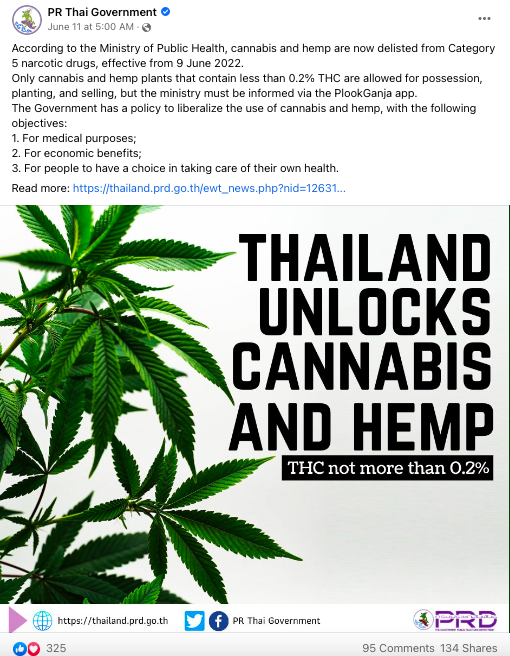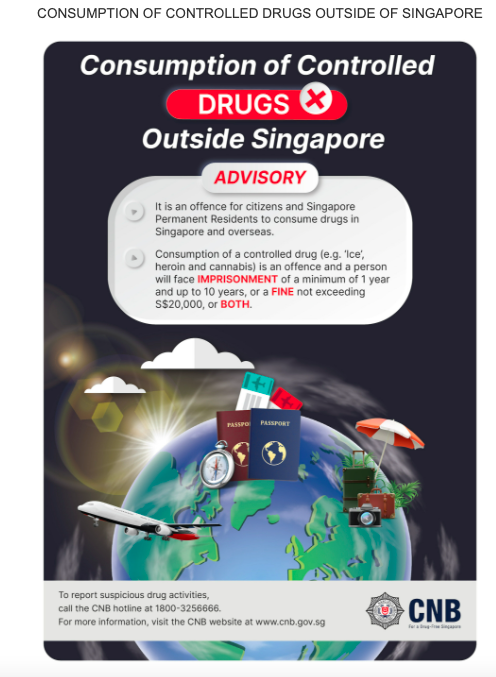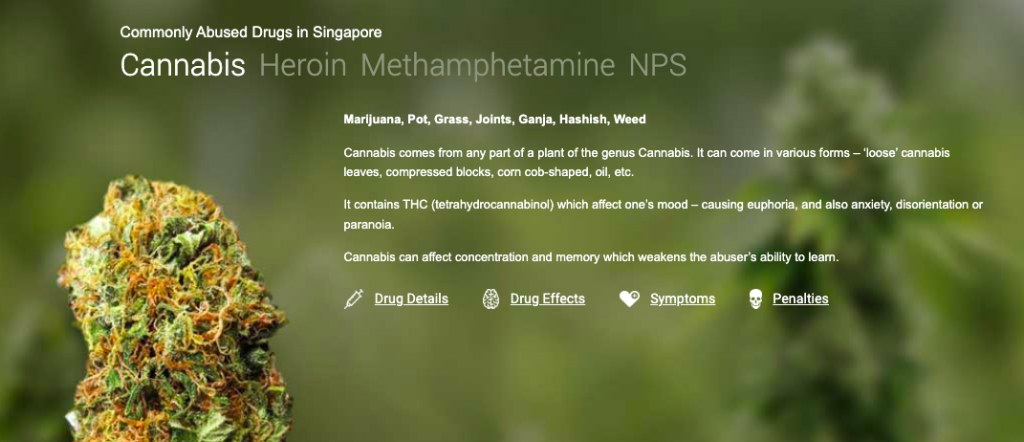In the wake of Thailand legalizing the cultivation and possession of marijuana and hemp for specific purposes last month, Singapore’s Central Narcotics Bureau (CNB) issued a reminder to Singaporeans overseas that doing drugs is an offence.
Cannabis is now legal in Thailand, but CNB warns Singaporeans consuming drugs outside S’pore is still an offence.
In June, the Thai Food and Drug Administration removed marijuana and hemp from the Category 5 narcotics list. This means that Thailand is the first Asian country to decriminalize marijuana for industrial and medical use.
But this does not mean that recreational marijuana has been legalized nationally in Thailand.
The Thai government said via its official Facebook account that “only cannabis and hemp plants that contain less than 0.2% THC are allowed for possession, planting, and selling,” and only when authorities are informed.

The objective of the Thai government is for “medical purposes, economic benefits, and for people to have a choice in taking care of their own health.”
The CNB recently issued a warning, however, concerning the consumption of controlled drugs outside of Singapore.

It reminded the public that it is an offence for citizens and Permanent Residents to consume drugs, both in Singapore and overseas.
Moreover, the CNB added that “Consumption of a controlled drug (e.g., ‘Ice,’ heroin, and cannabis) is an offence and a person will face IMPRISONMENT of a minimum of 1 year and up to 10 years, or a FINE not exceeding $20,000, or both.”
The CNB website lists Cannabis as a commonly abused drug in Singapore, as well as identifies the more common names for the drug: Marijuana, Pot, Grass, Joints, Ganja, Hashish, and Weed.

“It can come in various forms – ‘loose’ cannabis leaves, compressed blocks, corn cob-shaped, oil, etc.
It contains THC (tetrahydrocannabinol) which affect one’s mood – causing euphoria, and also anxiety, disorientation or paranoia.
Cannabis can affect concentration and memory which weakens the abuser’s ability to learn,” the site adds.
Despite the recent ruling, it’s unlikely for Thailand to become “a weed wonderland like Amsterdam,” according to a recent piece in The Washington Post.
Anyone who is caught smoking marijuana in public may face a three-month jail sentence and a fine of almost S$1000.
Individuals “investigating cannabis for its medicinal benefits or exploring business opportunities are being welcomed. But I would caution purely recreational tourists to hold off before putting Thailand on their trip list,” Monique Jackson-Fitzgerald, co-founder of cannabis travel platform InnDica, told The Washington Post.
Therefore, it’s a good idea for would-be tourists to understand Thailand’s laws first.
“When cannabis consumers are making their decisions about where to vacation, it’s important that they take the time to actually understand the local laws so they don’t inadvertently end up doing something that could get them into trouble,” a cannabis reform expert is quoted as saying. /TISG

